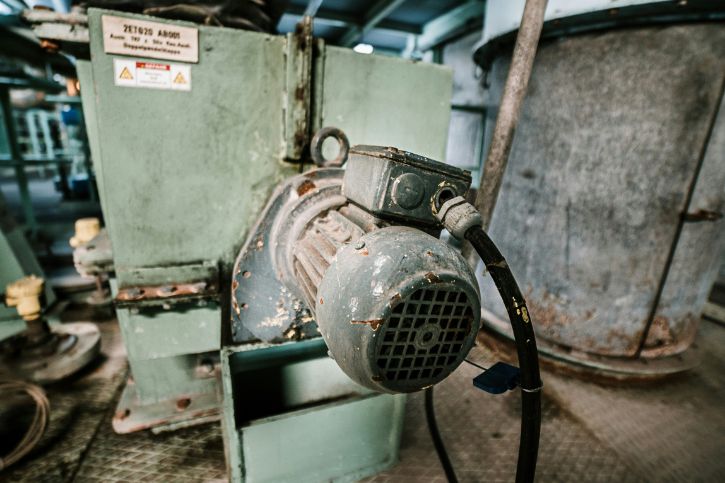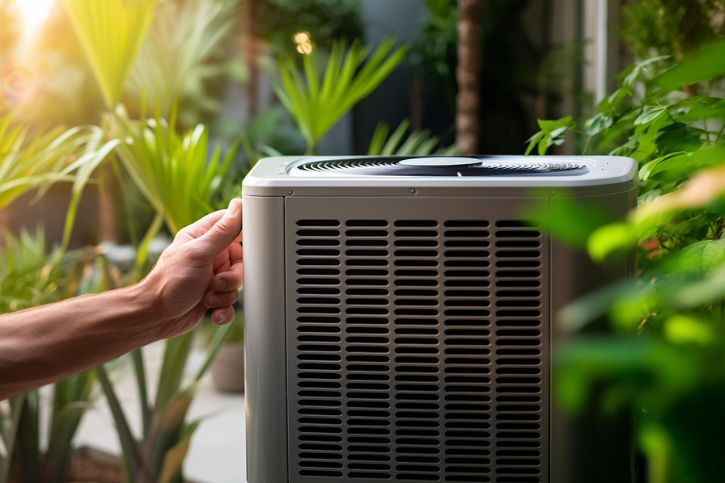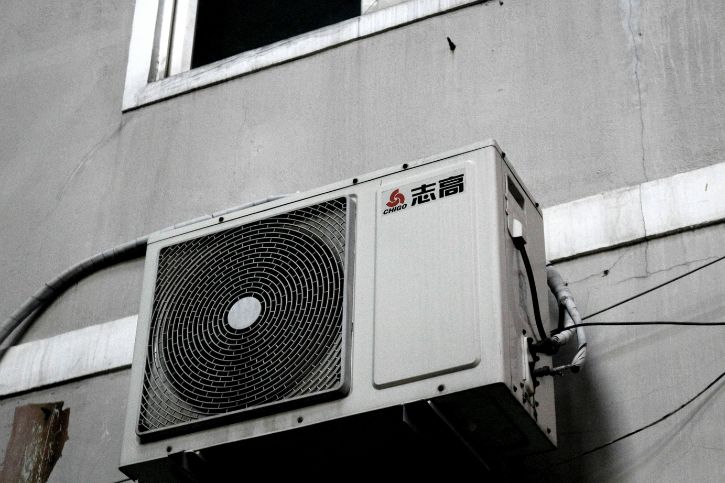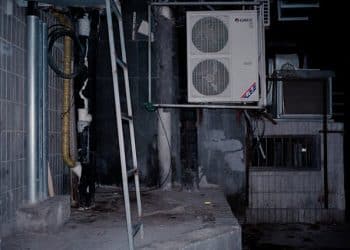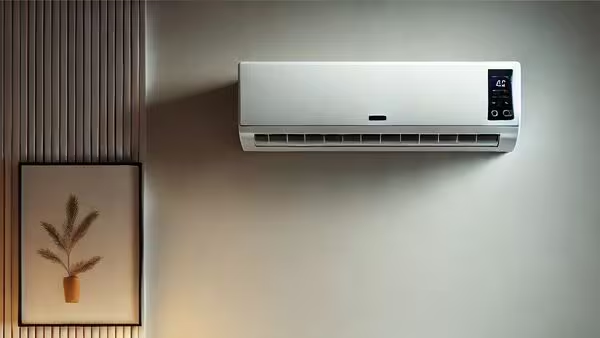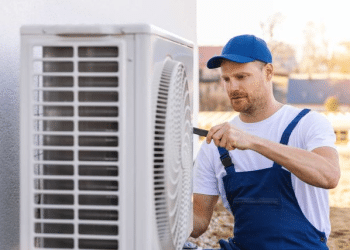Table of Contents
Introduction to HVAC Compressor Failure
An HVAC system has numerous important components, one of them being the compressor. Unfortunately, like any part of the HVAC system, a compressor can also malfunction and fail, causing major problems in temperature regulation in your house.
Therefore, it is important to know some major signs of upcoming compressor failure and how it can be avoided. But, before that, it is key to know the basic function of a compressor and why it is such a central part of HVAC systems around the world.
Overview of Compressor Function and Importance
A compressor, as the name suggests, compresses the refrigerant present in the system. In an HVAC system , the refrigerant takes heat from the evaporator and takes on a liquid form as it reaches the compressor. The compressor then reduces its volume significantly and converts it into a high-pressure gas.
This also increases the temperature of the refrigerant, which now flows to the condenser and the heat is released outside. In this way, a compressor aids in maintaining equilibrium in an HVAC system.
The compressor is vital to the system as any form of malfunction will increase the load on other components at best or lead to the complete breakdown of the HVAC at worst. Therefore, it is necessary to identify possible problems and resolve them as soon as possible.
Common Causes of HVAC Compressor Failure
Here are 4 common causes of compressor malfunction within an HVAC system:
Electrical Issues
Electrical issues can occur due to many different reasons, one of them being faulty wiring, damaged contactors or fuses, or acid buildup in some parts of the HVAC system.
Irrespective of the problem, the end result is the same: your HVAC system will malfunction and your compressor will likely be damaged. Electrical issues can also occur due to constant electrical fluctuations or power outages in some cases.
Contaminants In The System
Simple cleaning and maintenance can go a long way in increasing the functionality and lifespan of an HVAC system. A gradual build-up of dust and debris is the most likely cause of compressor malfunction.
This build-up can occur in mainly two places: condenser coils or the outdoor unit. Since the condenser coils are hard to clean, it easily accumulates dust. This increases the load on the compressor, which eventually causes overheating and causes it to fail.
Meanwhile, contaminants can enter the outdoor unit and cause problems for the compressor. Even outside air can reduce the refrigerant levels in the compressor, causing it to overheat.
Therefore, it is important to use air duct cleaning tools such as a duct cleaning air compressor and vacuum to safely remove all these stubborn contaminants.
Insufficient Lubrication
Just like any machine with moving parts, the compressor too requires lubrication to ensure smooth performance. Without proper lubrication, the moving parts will rub against each other, increasing friction and consequently raising the heat in the compressor.
Eventually, the equipment will break down. The most common cause of loss of lubrication is due to leakage within the compressor, often from a shaft seal.
Refrigerant Problems
As mentioned before, a refrigerant plays a key within a compressor and the overall HVAC system. However, rather than only facing low levels of refrigerants, even higher than specified levels can be a problem for the compressor. Low refrigerant levels often occur due to some form of leakage within the system.
This decreases the overall pressure and increases the load on the compressor. Inversely, high refrigerant levels translate to increased pressure which also negatively affects compressor performance.
Preventative Measures to Avoid Compressor Failure
Now that the main causes of compressor failure have been addressed, it’s time to look at some simple ways to ensure this situation is avoided altogether.
Regular Maintenance and Inspections
The most surefire way to avoid compressor failure and malfunction is by performing a routine inspection of the HVAC unit. Professionals can examine the wiring to see if anything is out of the norm, or if there are any damaged fuses or connectors. It is also important to check for acid buildup within the system, as it can directly contribute to an electrical fault.
Next, the condenser coils themselves need to be cleaned thoroughly by professionals, as they are hotbeds for dust and debris buildup if left unchecked.
Moreover, check the lubrication within the compressor as well. The bottom line is, all these are part of a regular cleaning and maintenance checklist that must be done regularly.
Using Quality Components and Filters
If the compressor does fail and a replacement is warranted, then invest in some high-quality components and filters to nip the problem in the bud. For instance, choose compressors with strong constituent parts that can take some fluctuations in pressure and temperature.
Apart from this, to keep dust and contaminants out of the system, go for top-notch filters from reputed industrial air filter manufacturers. This will prevent any overheating within your compressor, keep your HVAC system working in an optimal condition and bring down instances of breakdowns or repairs.
Advanced Solutions for Compressor Longevity
Apart from preventative maintenance, compressor failure can also be handled directly by investing in its longevity. There are two primary ways to do so:
Implementing Monitoring Systems
Many modern HVAC systems come with a series of advanced sensors that can observe various parameters within the unit and raise alarms if anything is out of the norm.
This will be a game-changer for compressor longevity as any anomalies can be observed in real-time. This means addressing the problem immediately so that the compressor never fails and its wear and tear is kept to a minimum.
Upgrading to High-Efficiency Systems
Another option is to choose a high-efficiency HVAC system. These are designed with longevity and maximum performance in mind. Therefore, a highly efficient HVAC system can handle some pressure and temperature fluctuations as it continues to perform optimally.
This means that there will not be too much undue load on the compressor, and even if there is some increased load occasionally, the compressor is also designed to handle these challenges.
Thus, by addressing performance and longevity issues, compressor failure can be avoided altogether.
Conclusion
To sum it up, compressor failure is a major problem plaguing HVAC systems. The main causes of failure can be attributed to electrical faults, lack of lubrication, changes in refrigerant levels and the presence of contaminants within the system.
Fortunately, through regular maintenance and investing in quality industrial filters, these problems can be addressed in a timely manner. For a more advanced approach, you can always invest in monitoring or high-efficiency systems to nip the problem in the bud. Overall, with this preliminary knowledge, compressor failure and repair won’t seem like a daunting task to you anymore.

